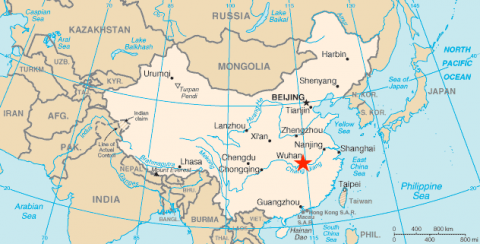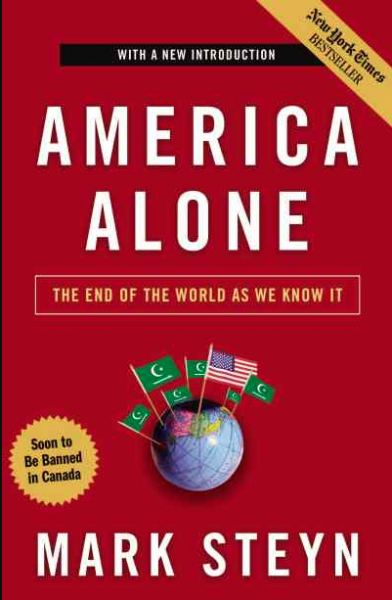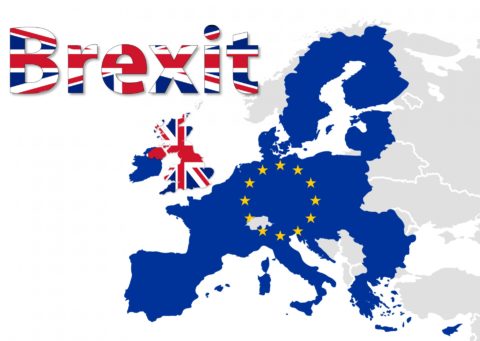The most famous episode of price controls in Roman history was during the reign of Emperor Diocletian (A.D. 244-312). He assumed the throne in Rome in A.D. 284. Almost immediately, Diocletian began to undertake huge and financially expensive government spending projects.
There was a massive increase in the armed forces and military spending; a huge building project was started in the form of a planned new capital for the Roman Empire in Asia Minor (present-day Turkey) at the city of Nicomedia; he greatly expanded the Roman bureaucracy; and he instituted forced labor for completion of his public works projects.
[…]
Diocletian also instituted a tax-in-kind; that is, the Roman government would not accept its own worthless, debased money as payment for taxes owed. Since the Roman taxpayers had to meet their tax bills in actual goods, this immobilized the entire population. Many were now bound to the land or a given occupation, so as to assure that they had produced the products that the government demanded as due it at tax collection time. An increasingly rigid economic structure, therefore, was imposed on the whole Roman economy.
But the worst was still to come. In A.D. 301, the famous Edict of Diocletian was passed. The Emperor fixed the prices of grain, beef, eggs, clothing, and other articles sold on the market. He also fixed the wages of those employed in the production of these goods. The penalty imposed for violation of these price and wage controls, that is, for any one caught selling any of these goods at higher than prescribed prices and wages, was death.
Realizing that once these controls were announced, many farmers and manufacturers would lose all incentive to bring their commodities to market at prices set far below what the traders would consider fair market values, Diocletian also prescribed in the Edict that all those who were found to be “hoarding” goods off the market would be severely punished; their goods would be confiscated and they would be put to death.
In the Greek parts of the Roman Empire, archeologists have found the price tables listing the government-mandated prices. They list over 1,000 individual prices and wages set by the law and what the permitted price and wage was to be for each of the commodities, goods, and labor services.
A Roman of this period named Lactanius wrote during this time that Diocletian “… then set himself to regulate the prices of all vendible things. There was much blood shed upon very slight and trifling accounts; and the people brought no more provisions to market, since they could not get a reasonable price for them and this increased the dearth [the scarcity] so much, that at last after many had died by it, the law was set aside.”
Richard M. Ebeling, “How Roman Central Planners Destroyed Their Economy”, Foundation for Economic Education, 2016-10-05.
April 14, 2020
QotD: The Edict of Diocletian, 301 AD
April 10, 2020
March 16, 2020
QotD: Company incentives to prevent sexual harassment
One of the predictions I’m seeing everywhere, for instance, is how now Human Resources will need a lot more power over companies to prevent more #metoo incidents of sexual importuning of women.
The funny thing about this is that anyone with two eyes and a modicum of understanding of the world knows that this is not where the crazy is headed. As the attempt to drown out the legitimate cases of harassment — mostly by leftists, in leftist-dominated institutions — by claiming #metoo and that all men were essentially harassers becomes more frantic, it has become obvious that any man can be accused of harassment at any time by anyone.
So, here is a genuine prediction: I predict that instead of giving HR more power, this will give companies pause before hiring women, which will lead to a lot of decent and qualified women being left unemployed.
The second-order effect of that, for companies that can’t avoid hiring women, is two-fold: they’ll either hire women to “make-believe” positions, in which they interact only or primarily with other women, creating a drain on the bottom line, or they will allow a lot more work-at-home by both men and women. I predict we’ll see a great move towards that in the next year. Sure, it’s still possible to claim someone is harassing you via the phone, but one-party consent states at least will allow men to record everything in order to defend themselves.
Weirdly, I believe the long-term result of this will be the dismantling of the daycare and child-warehousing practice which has led to a lot of the left’s ascendency in education.
This is because no matter how much you wish to wishful think that companies will just give Human Resources more power, people who actually live and work in the world know this isn’t likely. Human Resources would mostly just make it impossible for anyone to get any work done.
Sarah Hoyt, “Nobody Expects These Predictions”, PJ Media, 2017-12-31.
March 4, 2020
March 3, 2020
QotD: Public service and competitive private enterprise
Anyone who deals with the general UK public (coercive) sector regularly, knows it is a cesspit of laziness, incompetence, arrogance and corruption, riddled with civil servants that are neither civil nor servants.
And I’m not suggesting that the levels of corruption and incompetence are comparable to those found in third world hellholes. A local official in your county council is very unlikely to demand a bribe and then have your daughter raped by his buddies if you decline. He’s especially unlikely to get away with it, and then douse your family in petrol and burn them alive if you complain – those are the levels of corruption found elsewhere in the world, so we need to retain some perspective here.
But those countries have not benefited from a thousand years of sacrifice to earn us a culture that has learned through bitter experience how to run a country. Our civil servants should be performing at the highest standard and be the best in the world, because what they inherited was a culture that conquered that world, and brought civilisation and progress (often at great cost) to every corner of it.
That they have fallen from these heights and now occupy such low places should be a matter for great national shame. And yet they continue to lord it over those they pretend to serve – try calling your local planning department if you want instruction in how supercilious a local functionary feels able to be when speaking to those he claims to serve. If you just want them to do their job, you better be prepared to beg.
Whereas on the flip side, we might agree that the private (voluntary) sector is largely filled with honest and hardworking people and entrepreneurs, but there are crony capitalists out there too.
Your local butcher and baker (those that have survived the regulatory avalanches under which the crony capitalists have begged their pet politicians to bury them) remain staunch servants of their customers (through regard to their own interests), whereas oligoplists (supermarkets, telcos, insurance companies, banks, energy suppliers or transport companies) deliver to us just what the monopolists of government do – an icy contempt that would soon turn to withering small arms fire if the laws allowed it.
Alex Noble, “Corruption In The Coercive And Voluntary Sectors: Rotten Apples? Or The Tips of Icebergs?”, Continental Telegraph, 2019-12-02.
February 26, 2020
The Home Office – “Abandon hope all ye who enter here”
From Stephen Pollard, one gets the sense that no rational politician would ever want to be Home Secretary in a British government:
Here’s a trick question: which Home Secretary has been subject to hostile briefings from within the department that they are too Right-wing, too populist, too lazy, too stupid and a bully?
It’s a trick because the answer is: almost all of them. You can pretty much take your choice from any of those who have arrived at the Home Office with a definable agenda, and one that differs from the received Home Office wisdom.
The briefings currently being meted out against Priti Patel are certainly severe. She has been accused of creating an “atmosphere of fear” by officials, an allegation strongly denied by ministers. But in the sweep of recent political history, they are entirely normal. The Home Office has always played dirty when a minister attempts to overturn its shibboleths. The moment its mandarins sniff trouble, stories start appearing in the press about how the new minister is out of his or her depth, unthinking, posturing and — always the same — a variation on stupid.
[…]
The list of the Home Office’s responsibilities is ludicrously large, including: illegal drug use; alcohol strategy, policy and licensing conditions; terrorism; crime; public safety; border control; immigration; applications to enter and stay in the UK; issuing passports and visas; policing; fire prevention; fire rescue. In addition it is responsible for more than 30 agencies and public bodies.
John Reid infamously described its immigration department as “not fit for purpose”, and that quote has often been — understandably — misapplied to the Home Office as a whole.
The likes of Michael Howard and David Blunkett, who became Home Secretary in 2001, were political heavyweights with enough nous to get a grip of the hostile department. In preparing my biography of Blunkett, I spent months in and out of the Home Office when he was running the department, observing and speaking to officials — some who were supportive of their boss but others who clearly regarded him as an irritant.
One adviser to Blunkett recalls that the feeling was mutual. Blunkett wanted to replace the senior civil servants from top to bottom, and he and his aides were shocked at just how chaotic and inefficient the department was. “Nothing had prepared us for it,” recalled one adviser. “It was worse than any of us had imagined possible. God alone knows what Jack [Straw] did for four years. I am simply unable to comprehend how he could have left it as it was. At least Howard had the alibi that he was attempting a wholesale culture shift. In the Home Office, doing nothing means going backwards. It was a mess. A giant mess.”
February 23, 2020
China’s government and the coronavirus epidemic
In Quillette, Aaron Sarin shows how the Chinese government has systematically failed to respond adequately to the epidemic which broke out late in 2019in Wuhan and risks “losing the Mandate of Heaven”:
As of this writing, the epidemic’s death toll is still rising, and many of these deaths can ultimately be traced to the paranoid rigidity of the Xi Jinping administration. By late December 2019, doctors in Wuhan were already sounding the alarm over cases of what appeared to them to be SARS. Instead of listening to their warnings, the authorities summoned eight of these doctors for a dressing-down. They were warned of the punishments they could face for “rumour-mongering.” News of their detention was broadcast to tens of millions: a clear message to anyone else who might have been thinking about discussing viruses in public.
The Party’s leaders actually knew enough to be worried by this point — they alerted the World Health Organisation on December 31st — and yet still they hid the truth from the public. This neurotic obsession with secrecy has certainly cost lives. If the medical community had been informed of the outbreak back in December, hospitals could have stockpiled the necessary supplies. But now there are drastic shortages, and patients are dying in hallways and waiting rooms.
Even the critics of authoritarian dictatorship will usually agree that the system beats democracy for sheer efficiency, but the coronavirus debacle has turned that old wisdom on its head. Where we might have expected cold and methodical governance, we have found dithering bureaucrats, unable to take a step in any direction, paralysed by what Xu Zhangrun calls “systemic impotence.” Weeks went by and citizens swarmed in and out of Wuhan, picking up the virus and transporting it to the far corners of the country. Local government officials stayed quiet, wary of the heavy hand of Xi Jinping. On January 23rd, a citywide quarantine was finally announced, but eight long hours passed before it was enacted — time enough for a million or more to flee the city.
The Wuhan lockdown was repeated in other parts of the country (most recently the southern megacity of Guangzhou), and some observers praised the speed with which new hospitals were constructed from scratch. These very visible displays of its power aside, the Party has moved far too slowly at every stage of the crisis. Diagnostic testing required samples to be sent all the way to a laboratory in Beijing, and this delayed the distribution of testing kits to many of the hospitals in Wuhan. Even when testing kits were available, patients still found themselves trapped in a Kafka-esque web of bureaucracy. According to Reuters, the tests have been refused to people who fail to make it through a complex reporting system involving hospital authorities, district authorities, city health authorities, and disease control officials.
None of this should come as a surprise. The cliché about the efficiency of authoritarian systems was always, on closer analysis, something of a low-resolution image. In the old days of the Soviet Union, speedy industrial growth obscured the reality of a fragile system largely devoid of autonomous decision making. During the 1920s, the Communist Party’s state planning committee Gosplan was established with the impressive-sounding mission of creating a series of five-year plans to govern the economy. But over the next 70 years, the vast majority of these plans were radically revised and rewritten, or more frequently ignored altogether in favour of Joseph Stalin’s arbitrary dictates. Indeed, Gosplan actively tried to avoid making decisions at all, because committee members knew Stalin would have them shot and replaced if their ideas produced unwelcome results. In the end, fear saps the efficiency of all authoritarian regimes, and the Chinese Communist Party is no exception.
Li Wenliang has emerged as the most vivid symbol of the Party’s latest failure. Li was one of the Wuhan doctors disgraced for discussing the coronavirus on social media. A few days after his police warning, he contracted the virus himself, and on February 6th he died. It was during the period of Li’s short illness that the Party apparently realised its error and decided to absolve the doctors, but still the central government would accept no blame for the tragedy. Instead, the Supreme Court (which is controlled by the CCP) scolded the local government in Wuhan — an unusual move, no doubt designed to create a scapegoat for surging public anger. The truth is that the city’s officials had been faced with an impossible job. They obediently followed orders, and now they will be punished for it.
February 20, 2020
QotD: Preventing bureaucratic mission creep
The mission creep that is the effect of those not slumbering in meetings and thus adding another bright idea to the tasks the organization attempts is not restricted to the public sector.
Private companies are just as vulnerable. However in that private sector we have a mechanism by which the seemingly inevitable bureaucratization is dealt with. Once it happens, the organization goes bankrupt and is removed from the scene. What we need is a similar system to deal with this process in the public sphere.
I don’t, given the above, find it at all remarkable that the WTO is regarded as succumbing to these forces, nor the UN, Amnesty, the European Union or even our own domestic governments (just how did the interstate commerce clause become a justification for Congress to restrict something that is not interstate and is not commerce?). I think it inevitable.
Various solutions appear to be available, the French one might be an example. Put up with it for 50 years then have a revolution and start again. Perhaps the answer is never to allow the public bodies to have much power in the first place, a solution that hasn’t really been tried anywhere. The Italian one? Let the system carry on adding ever more layers but ignore it? Stalin’s? Every 15 years or so shoot the bureaucrats?
All such methods have their attractions and their faults but a solution we do need to find. For one of the lessons I take from the history of the 20th century is that we don’t actually want to be ruled by those who stay awake in committee meetings.
Tim Worstall, “‘Any Organization Will, In the End, Be Run By Those Who Stay Awake in Committee'”, Ideas in Action, 2005-06-23.
February 12, 2020
February 2, 2020
“The European Union is a 1970s solution to a 1940s problem”
Mark Steyn shares some thoughts on the now-diminished European Union from his 2006 book America Alone as the United Kingdom exits the European Union:
The construction of a pan-continental Eutopia was meant to ensure that Europe would never again succumb to militant nationalism of one form or another. Instead, the European Union’s governing class has become as obnoxiously post-nationalist as it was once nationalist: its post-nationalism has become merely the latest and most militant form of militant nationalism — which, aside from anything else, makes America, as the leading “nation state” in the traditional sense, the prime target of European ire.
It’s true that there are many European populations reluctant to go happily into the long Eurabian night. But, alas for them, modern Europe is constructed so as to insulate almost entirely the political class from populist pressures. As the computer types say, that’s not a bug, it’s a feature: the European Union is a 1970s solution to a 1940s problem, and one of the problems it was designed to solve is that fellows like Hitler and Mussolini were way too popular with the masses. Just as the House of Saud, Mubarak, and the other Arab autocracies sell themselves to the West as necessary brakes on the baser urges of their peoples, so the European leadership deludes itself on the same basis: why, without the EU, we’d be back to Auschwitz. Thus, on the eve of the 2005 referendum on the European “constitution,” the Dutch prime minister, Jan Peter Balkenende, warned his people where things would be headed if they were reactionary enough to vote no. “I’ve been in Auschwitz and Yad Vashem,” he said. “The images haunt me every day. It is supremely important for us to avoid such things in Europe.”
Golly. So the choice for voters on the Euro-ballot was apparently: yes to the European Constitution or yes to a new Holocaust. If there was a neither-of-the-above box, the EU’s rulers were keeping quiet about it. The notion that the Continent’s peoples are basically a bunch of genocidal wackos champing at the bit for a new bloodbath is one I’m not unsympathetic to. But it’s a curious rationale to pitch to one’s electorate: vote for us; we’re the straitjacket on your own worst instincts. In the end, the French and Dutch electorates voted no to the new constitution. One recalls the T-shirt slogan popular among American feminists: “What part of ‘No’ don’t you understand?” In the chancelleries of Europe, pretty much every part. At the time of the constitution referenda, the rotating European “presidency” was held by Luxembourg, a country slightly larger than your rec room. Jean-Claude Juncker, its rhetorically deranged prime minister and European “president,” staggered around like a collegiate date-rape defendant, insisting that all reasonable persons understand that “Non” really means “Oui.” As he put it before the big vote: “If it’s a yes, we will say ‘on we go,’ and if it’s a no we will say ‘we continue.'”
And if it’s a neither of the above, he will say “we move forward.” You get the idea. Confronted by the voice of the people, “President” Juncker covers his ears and says, “Nya, nya, nya, can’t hear you!”
Only in totalitarian dictatorships does the ballot come with a pre-ordained correct answer. Yet President Juncker distilled the great flaw at the heart of the EU constitution into one disarmingly straightforward expression of contempt for the will of the people. For his part, the architect of the constitution — the former French president Valery Giscard d’Estaing — was happy to pile on: why, even if the French and the Dutch had been boorish enough to want to vote no to the constitution, they would have been incapable of so doing, as the whole thing was designed to be way above their pretty little heads. “It is not possible for anyone to understand the full text,” declared M. Giscard. During his labors on the constitution, he’d told me he saw himself as “Europe’s Jefferson.” By referendum night he’d apparently become Europe’s Jefferson Airplane, boasting about the impenetrability of his hallucinogenic lyrics. The point is that his ingrate subjects had no need to read beyond the opening sentence: “We the people agree to leave it to you the people who know better than the people.”
After that, the rest doesn’t matter: you can’t do trickle-down nation-building. The British, who’ve written more constitutions for more real nations than anybody in history and therefore can’t plead the same ignorance as President Juncker, should be especially ashamed of going along with this farrago of a travesty of a charade.
February 1, 2020
Trudeau government’s unwillingness to define what they mean by “middle class”
The phrase has taken on almost an Alice in Wonderland quality for Justin Trudeau and his recently created “Minister of Middle Class Prosperity”:
“When I use a word,” Humpty Dumpty said in rather a scornful tone, “it means just what I choose it to mean — neither more nor less.”
“The question is,” said Alice, “whether you can make words mean so many different things.”
“The question is,” said Humpty Dumpty, “which is to be master — that’s all.”
It could be addressed, says Chris Selley … and really should be:
In the meantime, the Liberals have another problem. It is far less important than Iran or China, but it’s also far more embarrassing than either, because it is entirely of their own making and so easily fixed. It is as follows: Trudeau has given Ottawa MP Mona Fortier the new cabinet title of “Minister of Middle Class Prosperity,” but no one in the government has yet bothered to define “middle class.” And everyone is laughing at them.
Mona Fortier, Minister of Middle Class Prosperity and Associate Minister of Finance.
© HOC-CDC. Photo by Christian Diotte, House of Commons Photo Services, November 2019.Fortier has tried to explain herself. “We have to make sure we represent the realities in a rural, remote or even urban setting, (and) regional differences,” she told CTV upon her appointment. “The income required to attain a middle-class lifestyle can vary greatly based on Canadians’ specific situation,” she told the same network this week.
She’s right! Pack up your middle-class lifestyle in Small Town A, and you might well not recognize it when you unpack in Big City B. The thing is, though, statisticians — including scores of them in the federal government’s employ — are across this. They know very well that a Canadian dollar does not purchase the same quantity of goods and services in every part of the country, and they have all sorts of ingenious ways to compensate.
If it were true that “middle class” can’t be defined because it connotes different things in different places, then the same would go for “poverty.” But Canada has never had any problem defining poverty on a relative basis. And in 2018, this very Liberal government adopted an absolute measure of poverty as well: the Market Basket Measure, which estimates the cost of “a modest standard of living” in any given place, and calculates how many of us can’t afford it.
So the “poverty line” in Small Town A is not the same as it is in Big City B, and … sorry, this very simple concept doesn’t need to be explained to National Post readers any further. The point is, defining poverty was a good thing. Defining the middle class obviously doesn’t matter as much, but since this government seems utterly obsessed with it — and with evidence-based policy! — there is no good reason for it not to do likewise.
January 31, 2020
“… the report envisions unprecedented government and regulatory intervention into the delivery of news services”
Michael Geist heaps scorn on the recommendations of a panel that would empower the CRTC to regulate the internet in Canada to a very high degree:
The Broadcast and Telecommunications Legislative Review Panel released its much anticipated report yesterday with a vision of a highly regulated Internet in which an expanded CRTC (or a renamed Canadian Communications Commission) would aggressively assert its jurisdictional power over Internet sites and services worldwide with the power to levy massive penalties for failure to comply with its regulatory edicts. The recommendations should be rejected by Innovation, Science and Industry Minister Navdeep Bains and Canadian Heritage Minister Steven Guilbeault as both unnecessary to support a thriving cultural sector and inconsistent with a government committed to innovation and freedom of expression.
[…]
Yet the strengths of the telecommunications and consumer rights portions of the report are overshadowed by a stunning set of recommendations related to Internet content, some of which are unlikely to survive constitutional scrutiny, likely violate Canada’s emerging trade commitments, and rest of shaky policy grounds. If enacted, the Canadian Internet would be virtually unrecognizable with the CRTC empowered to licence or require registration from a myriad of Internet services, mandate what Canadians see on those services, and intervene in commercial negotiations. The 235 page report will require several posts to address all of its aspects and implications (including notable CBC and copyright reforms), but this post seeks to set out its broad-based content regulatory vision and make the case that the panel’s plan should be firmly rejected by the government.
The foundation of the content section of the report is the decision to regulate all media content, which includes audio, audiovisual, and news content delivered by telecom. In doing so, the report envisions unprecedented government and regulatory intervention into the delivery of news services. It argues that there are three types of services that provide this content that require regulation where they access the Canadian market:
- Curators – services that disseminate media content with editorial control (broadcasters and streaming services such as Netflix, Spotify, and Amazon Prime)
- Aggregators – cable companies, news aggregators such as Yahoo News
- Platforms for Sharing – services that allow users to share amateur and professional content such as YouTube, Facebook and other platforms
The panel recommends that all of these kinds of companies be regulated (either by way of licence or registration), be required to contribute to Canadian content through spending percentages or levies, and comply with CRTC regulations on discoverability that would include regulatory rules on how prominently Canadian content is displayed within the service. The CRTC would be empowered to decide whether to exempt services from regulation with the power to levy huge penalties for failure to comply with its decisions (described as “high enough to create a deterrent foreign undertakings”).
January 26, 2020
January 23, 2020
The EU apparently fears a “Singapore on the Thames”
In the Continental Telegraph, Tim Worstall explains why the EU negotiators are reportedly offering a much worse trade deal to the United Kingdom than they’ve already agreed with Canada, Japan, and other trading partners:
Take, for example, this idea of Singapore on Thames. It’s trivially easy to rally the peeps against one or other relaxation of regulation. Chlorine washed chicken for example. But what about lifting the entire burden? Singapore is, after all, about 50% richer than Britain on a per capita basis. The correct question therefore is would you like a 50% pay raise at the price of shooting all the bureaucrats? Given the manner in which the bureaucrats don’t want the question even asked we have a reasonable enough guide that the answer would be yes.
Which is why the terms on offer to a Britain which could do the SonT thing are so terrible. Because of SonT succeeded it would be a death blow to the entire idea of how Europe is regulated. Lille, Leipzig and Livorno will all put up with interfering bureaucracy because that’s just the way the world is. But if Les Rosbifs become richer by half again simply by that bonfire of the regulations then the auto da fes will light up all over Europe.
So, yes, of course the EU is offering shit trade terms. They can’t allow an independent and free Britain to succeed. That we will anyway is what will bring that freedom and liberty to the continent – once again. For as so often it will be us that saves Europe from itself.
January 19, 2020
Cursus honorum – Aediles
Historia Civilis
Published 6 Feb 2015Patreon: https://www.patreon.com/HistoriaCivilis
Website: https://www.historiacivilis.com
Twitter: https://twitter.com/HistoriaCivilisMusic is “Clap Your Hands” by Jahzzar (http://betterwithmusic.com)













